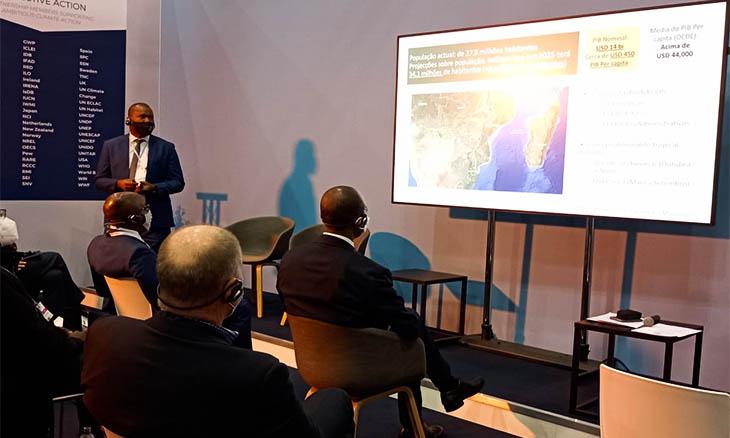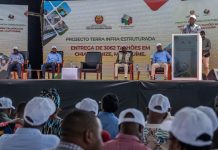Africa-Press – Mozambique. Energy transition should not be “at the cost of our development”. Such was the position shared yesterday by Prime Minister Carlos Agostinho do Rosário, representing the President of the Republic, Filipe Nyusi, at the United Nations Conference on Climate Change – COP26.
Mozambique is committed to transitioning the energy it produces from fossil to clean sources. This is a guarantee given by the country’s prime minister who, in Glasgow, Scotland, on Monday launched the second national plan to reduce greenhouse gas emissions, the Nationally Determined Contribution (NDC).
The first phase of the NDC implemented between 2018 and 2020, actualised commitments issuing from the Paris environmental conference in 2015. These include commitments to reduce pollution, through the emission of carbon dioxide into the environment, and the adaptation of the country to the impacts of climate change.
“We are committed to energy transition. But this must not be done at the cost of our development,” said Carlos Agostinho do Rosário, adding: “We have to have resources for this, because without these resources, adaptation and mitigation will not happen.”
But why Mozambique’s request for funding from the most developed countries? For example, the G20 group of industrialized economies is responsible for 80 percent of the gases emitted into the environment “… and by limiting emissions, they also limit the development windows for countries like ours”, Agostinho do Rosário explained.
Hence, The G20 countries in Paris pledged to finance the energy transition process for developing nations. Prime Minister Agostinho do Rosário explains that the money is needed because “we have to get technology to make the population adapt and understand the new guidelines so that they don’t devastate the forest. This conversion from what is the predominant culture to what needs to be done requires resources and technology. All of this is in our carbon emission reduction plan. Come, then, those who have technology and those who have money. We are going to mobilize ourselves to overcome this challenge”.
“Our country is on the route of extreme weather phenomena which, lately, occur with greater frequency and intensity,” th prime minister observed. “Over the past 40 years, Mozambique has been plagued by 21 tropical cyclones, 20 floods and 21 droughts. In 2019, Mozambique was hit by cyclones Idai and Kenneth.”
In conclusion, Do Rosario noted that our challenge is to transform this plan into action on the ground.
Mozambique’s Nationally Determined Contribution is implemented in partnership with other developing countries taking initiatives towards reducing emissions by 2030.
According to the National Director for Climate Change in the Ministry of Land and the Environment, Cláudio Afonso, the plan launched yesterday in Glasgow is more ambitious in terms of commitments.
“In the past, we had committed to reducing carbon dioxide by 31 million tonnes, and you can see now that the targets have gone up,” Afonso remarked. “So there is work that was done with the goals but also with budgeting, which is a way of having an operational plan and with everyone’s involvement so that we can reach and make our contribution with regard to these issues of climate change.”
Prime Minister Agostinho do Rosário’s intervention is scheduled for this Tuesday.
From Wednesday to November 12th, technical delegations will negotiate the terms of the Glasgow Agreement, which could determine the fate of the planet.
By
António Tiua
For More News And Analysis About Mozambique Follow Africa-Press






